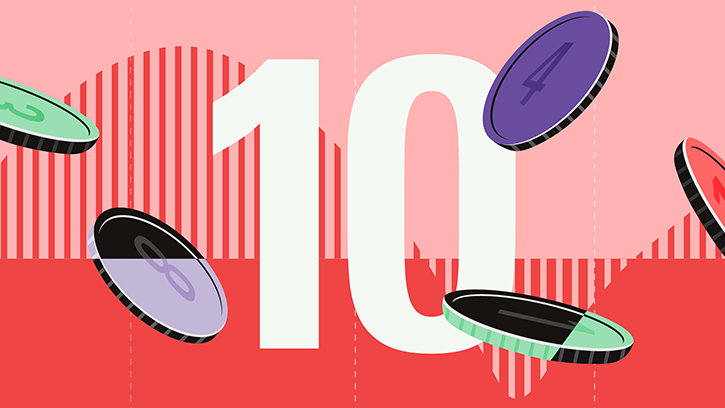
The UK unemployment rate edged lower in the three months to July, but wage growth abated, numbers on Tuesday showed.
According to the Office for National Statistics, the jobless rate fell to 4.1% in the three months to July, from 4.2% in the three months to June. The latest figure fell short of an FactSet forecast of a 4.2% rise.
Wage growth also eased. Averages earnings excluding bonuses rose 5.1% in the three months, cooling from 5.4% in the three months to June. The figure for July was in line with expectations.
"Growth was last lower than this in April to June 2022, when it was 4.7%," the ONS said.
Annual growth in total earnings, including bonuses, was 4.0%, a figure the ONS said was skewed by NHS and civil service one-off payments made in June and July of 2023. Growth in earnings including bonuses eased from 4.6% in three months to June.
What the Data Means for Pensions, Interest Rates
Experts look at what the data means for the state pension, the Bank of England's upcoming meeting and household incomes.
Jamie Jenkins, director of policy at Royal London:
“With inflation having reduced, the ‘triple lock’ will return to wage growth as the highest measure, and this should drive a 4% increase to the State Pension from April 2025.
“The government has committed to retaining the triple lock for now, ensuring that the State Pension rises each year by the highest of average wages, inflation or 2.5%.
“Inflation drove an 8.5% increase in April 2024 and, although the 2025 increase will be lower, it still serves to ensure those in receipt of the State Pension get the best of three measures, keeping pace with wages this year, and exceeding inflation at its current level.
“However, recent data obtained by Royal London found that only half of the 3.5 million recipients of the new State Pension were paid the full weekly amount of £203.85 last year, due to gaps in their National Insurance record. Until April 2025, those who are entitled to the new State Pension may be able to fill in the gaps going back to 2006.
Zara Nokes, global market analyst at J.P. Morgan Asset Management:
“A September rate cut from the Federal Reserve now looks almost certain, but the Bank of England should not be tempted to follow suit this month. Today’s moderation in UK wage growth, combined with the downside surprise in July's service sector inflation, adds some credence to the Bank’s assessment that the wage-price cycle is unwinding. However, with growth accelerating, this is not an economy in desperate need of stimulus and it seems unlikely the Bank would deliver another rate cut in such quick succession.
“In our view, the Bank would be better placed to wait until its November meeting to assess whether it needs to further ease off the brake. In doing so, policymakers could incorporate the outcome of the upcoming UK budget, while potentially also being able to gauge any impact on global growth and inflation dynamics stemming from the US election result.”
Sarah Coles, head of personal finance, Hargreaves Lansdown:
“Wages continue to rise ahead of inflation, which is why millions of people are feeling marginally better off at the moment. The HL Savings & Resilience Barometer, shows that real household disposable income is up 2.1% in a year, leaving us with £237 at the end of the month – more than twice the £110 we had before the pandemic. It means we’re able to save 6.8% of our income.
“However, wage growth is easing, and for the private sector it’s starting to look a little peaky – with regular pay growth at 4.9% - its lowest since spring 2022.
“Further down the income spectrum, things are looking even less promising. The HL Savings & Resilience Barometer shows that households on the lowest fifth of incomes have just £4 left at the end of the month, the next quintile has £41, and even those on middle incomes (earning £34,054) have just £169 of wiggle room. It wouldn’t need prices to rise much to tip plenty of households into difficulty.
"And the threat of inflation hasn’t gone away just yet. The headline figure has risen to 2.2% and is expected to inch higher as we go into the autumn and energy prices rise again. Already the Barometer shows that just under a third of people still have poor financial resilience, and those on lower incomes, renters, single people and those who are out of work still have a horrible struggle to make ends meet.”



























